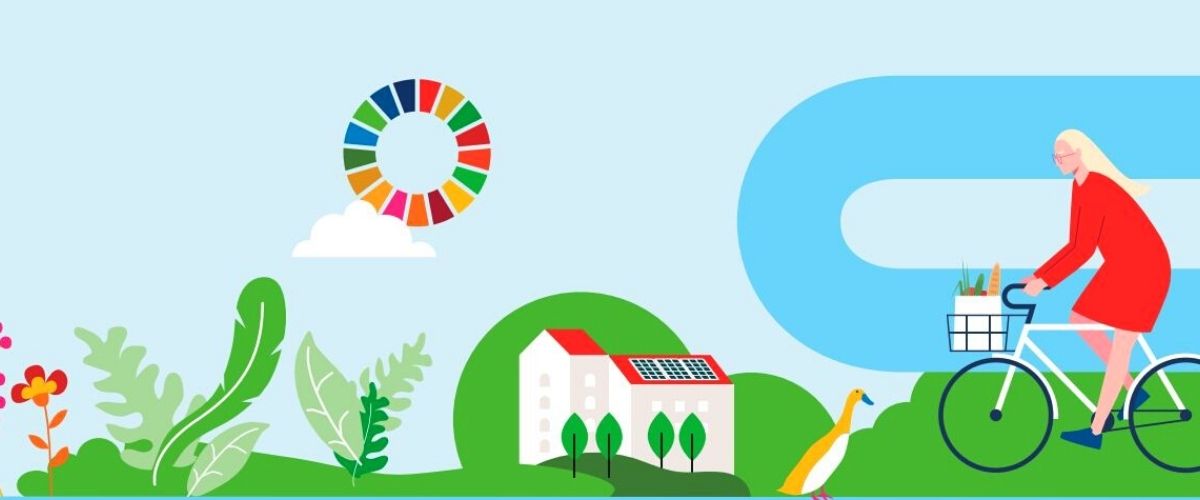Leading regional governments are deeply committed to the environmental agenda

On July 1, and within the framework of the United Nations High Level Political Forum of this year 2021, Regions4 brought together an important group of presidents and governors of leading regions in the event entitled “Building a Sustainable and Resilient Future : Subnational Governments Leading Integrated Approaches to People, Planet and Prosperity ”. As well as the notoriety of those gathered, it was news the determination with which all were in favor of regional governments assuming leadership in the development of the global agenda, and more specifically, that related to sustainability.
The President of the Regional Council of Rabat Salé Kénitra, Abdessamad Sekkal, the Prime Minister of Wales, Mark Drakeford, the President of the Basque Country, Iñigo Urkullu, the President of Catalonia, Pere Aragonès, the prefect of Azuay (Ecuador), Celicia Méndez, the President of ARDCI of Côte d'Ivore and President of the Council of Sud Comoé, Eugène Aka Aouelé, but also the representatives of Jalisco (Mexico), Aland Island (Finland) and Sao Paolo (Brazil), all were very committed to develop the 2030 Agenda and the SDGs.
Abdessamad Sekkal, who is also president of ORU Fogar, was in favor of the regions making a deep commitment to the three global agendas: the 2030 Agenda, the New Urban and the Paris Agreement. He said that five years after its approval, it is being seen that it is a long and complex process, for which "innovative and renewed forms are needed, as well as an undoubted multilevel collaboration". He explained how, in Morocco, territorial governance is being based on the principle of subsidiarity. This allows facing the challenge of ordering the territory, while preserving natural resources and water as a scarce good.
The intervention of the Welsh Prime Minister, Mark Drakefor, was of the greatest interest when he explained the policies of his government in defense of biodiversity. He explained his forest policy, but paid attention to how they protect biological diversity in urban and peri-urban areas. He asserted that his government walks towards being a "globally responsible Wales".
Basque President Iñigo Urkullu affirmed that his government has assumed the 2030 Agenda and the SDGs as part of his government program. He defended multilevel governance and the need for public-private collaboration. He showed his availability to work with the United Nations and to contribute to the development of global agendas with the Basque experience in self-government and his experience in collaborative governance.
The Catalan president, Pere Aragonès, explained the climate and biodiversity policies of his government. He spoke about the Catalan law against Climate Change and the taxes that are going to be levied on fossil fuels. And he finally said that the way out of the crisis must be with a social transformation inspired by the SDGs and the 2030 Agenda.
Cecilia Méndez, from Azuay, contributed the perspective of a province with indigenous communities and affirmed that the axis of development must be human beings. Thus, she explained the policies of her government to support family and rural agriculture through the public company AgroAzuay. These policies, explained the prefect, allow the creation of distribution networks for producers, while combating food problems in some areas.
Eugène Aka Aouelé, as president of the Assembly of Regions and Districts of Côte d'Ivore (ARDCI), expressed the commitment of the regions of his country to the 2030 Agenda. From climate and environmental agenda to food security and water management policies.
The event featured the intervention of various personalities from the United Nations field linked to the fight against climate change and the defense of biodiversity. All recognized the important role of the regions.
Arantxa Tapia, president of Regions4, affirmed that the voice of the regions is fundamental when it comes to deploying the 2030 Agenda and that, from the network, they were going to work for regional visibility. During the conference, Regions4 released the report "Regions Voice in UN reporting". The report presents the opportunities and benefits of Voluntary Subnational Exams and shows examples of regions that are reporting progress on the 2030 Agenda. Inspiring experiences shared in the Regions4SDGs Community of Practice are highlighted. Available here:
https://www.regions4.org/wp-content/uploads/2021/07/Regions-Voice-in-UN-reporting-1.pdf








































































